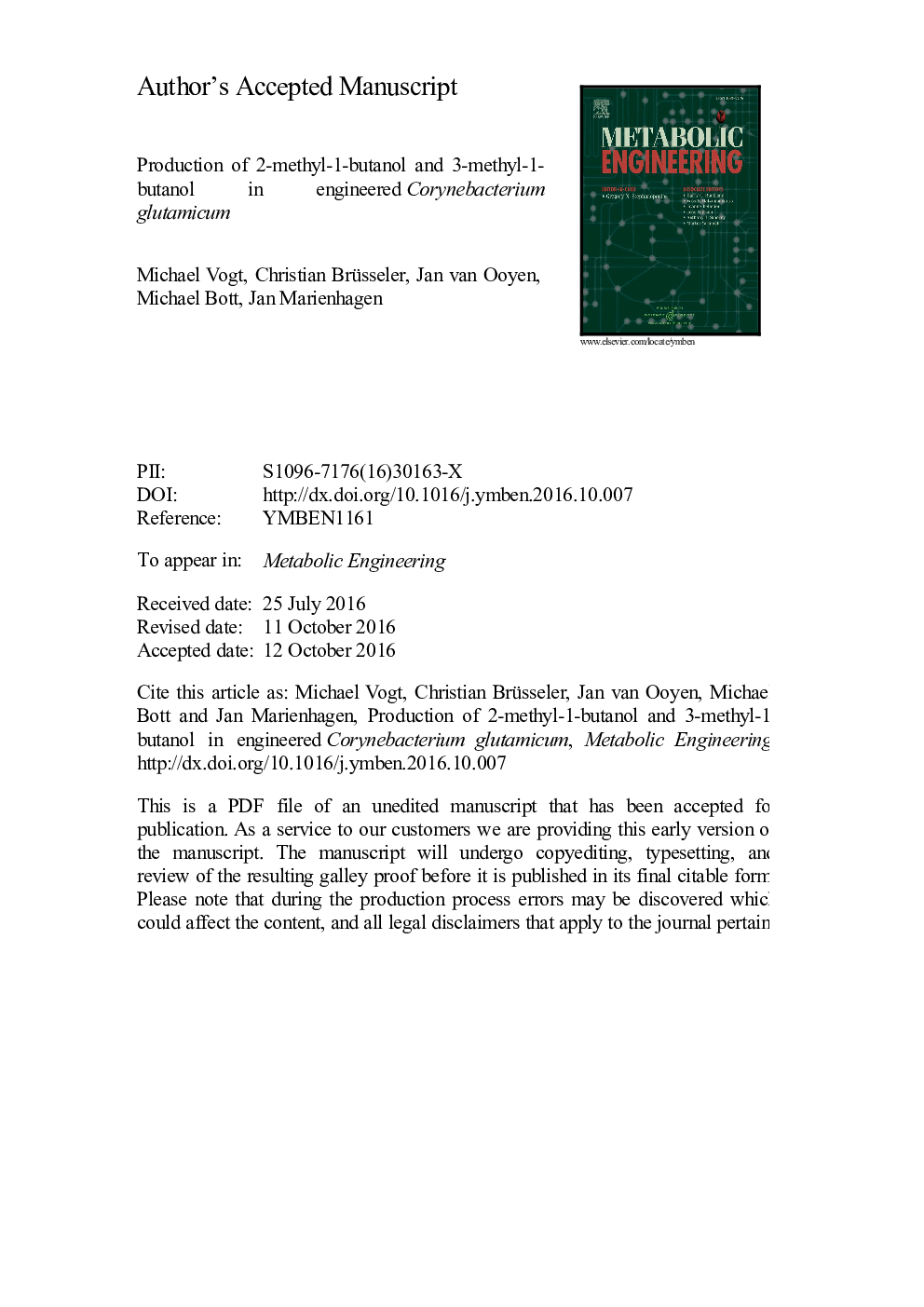| Article ID | Journal | Published Year | Pages | File Type |
|---|---|---|---|---|
| 6494224 | Metabolic Engineering | 2016 | 26 Pages |
Abstract
The pentanol isomers 2-methyl-1-butanol and 3-methyl-1-butanol represent commercially interesting alcohols due to their potential application as biofuels. For a sustainable microbial production of these compounds, Corynebacterium glutamicum was engineered for producing 2-methyl-1-butanol and 3-methyl-1-butanol via the Ehrlich pathway from 2-keto-3-methylvalerate and 2-ketoisocaproate, respectively. In addition to an already available 2-ketoisocaproate producer, a 2-keto-3-methylvalerate accumulating C. glutamicum strain was also constructed. For this purpose, we reduced the activity of the branched-chain amino acid transaminase in an available C. glutamicuml-isoleucine producer (K2P55) via a start codon exchange in the ilvE gene enabling accumulation of up to 3.67Â g/l 2-keto-3-methylvalerate. Subsequently, nine strains expressing different gene combinations for three 2-keto acid decarboxylases and three alcohol dehydrogenases were constructed and characterized. The best strains accumulated 0.37Â g/l 2-methyl-1-butanol and 2.76Â g/l 3-methyl-1-butanol in defined medium within 48Â h under oxygen deprivation conditions, making these strains ideal candidates for additional strain and process optimization.
Related Topics
Physical Sciences and Engineering
Chemical Engineering
Bioengineering
Authors
Michael Vogt, Christian Brüsseler, Jan van Ooyen, Michael Bott, Jan Marienhagen,
